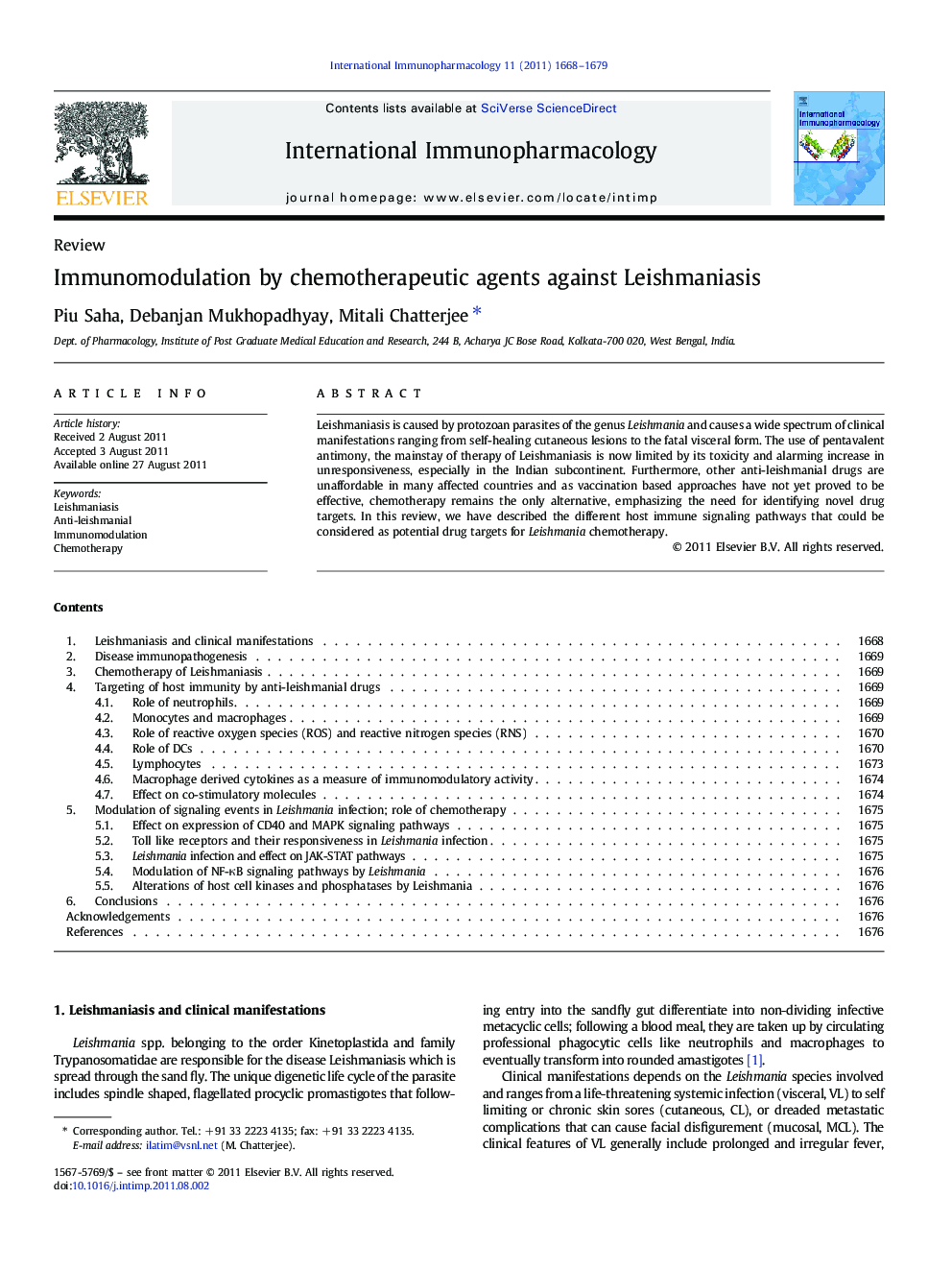| Article ID | Journal | Published Year | Pages | File Type |
|---|---|---|---|---|
| 5833673 | International Immunopharmacology | 2011 | 12 Pages |
Leishmaniasis is caused by protozoan parasites of the genus Leishmania and causes a wide spectrum of clinical manifestations ranging from self-healing cutaneous lesions to the fatal visceral form. The use of pentavalent antimony, the mainstay of therapy of Leishmaniasis is now limited by its toxicity and alarming increase in unresponsiveness, especially in the Indian subcontinent. Furthermore, other anti-leishmanial drugs are unaffordable in many affected countries and as vaccination based approaches have not yet proved to be effective, chemotherapy remains the only alternative, emphasizing the need for identifying novel drug targets. In this review, we have described the different host immune signaling pathways that could be considered as potential drug targets for Leishmania chemotherapy.
Graphical abstractDownload full-size imageHighlights⺠Presently, there is a limited availability of chemotherapeutic options in Leishmaniasis. ⺠Host immune modulation could be a good target for drug development in Leishmaniasis ⺠Antileishmanial compounds having immunomodulatory property may be a good alternative.
